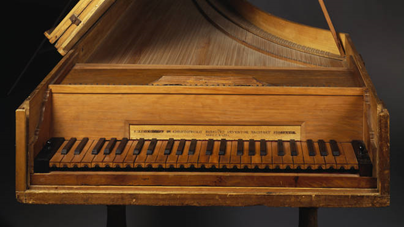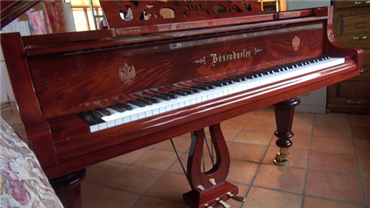Why does the piano have 88 keys?
Sunday, May 27, 2018 by Dawn Riggett | History
I was put in an unusual position last week, when one of my lovely students asked me ‘why does the piano have 88 keys?’ As a Piano teacher I should probably know this, so I was set homework from the lesson to find out why. What I found was quite interesting, so I thought a blog was required to share my newly found knowledge!
A standard piano has 88 keys: 52 white and 36 black. But who decided this number would be the norm, and why? The answer, as it turns out, has both historical and practical aspects.
Before the piano was invented, composers wrote a lot of music for the harpsichord, which has just 60 keys. This meant that everything they wrote was limited to the harpsichord’s five-octave range.
Around the year 1700, Bartolomeo Cristofori, a musical instrument technician from Italy, decided it was time to update the harpsichord. This new instrument had a brand new hammer and damper mechanism, two keyboards and a range of four octaves (49 keys). Poet and journalist Scipione Maffei described it in 1711 as a ‘gravicembalo col piano, e forte’ (harpsichord with quiet and loud). It was from here that the ‘pianoforte’ found its name.

Piano, made by Bartolomeo Cristofori (1655-1731)
After Cristofori’s invention, composers started getting more ambitious, writing more and more music for the piano. But the instrument’s four octave range was limiting. Therefore piano manufactures designed new pianos with more keys, so that composers could write more interesting material with a wider note range.
By the time Romantic composers were writing music in the mid-1800s, pianos had up to seven octaves.
In the late 1880s, piano manufacturer Steinway created the 88-key piano. Other manufacturers followed suite and the Steinway’s model has been the standard ever since.
An 88-key piano has seven octaves plus three lower note (B, B flat and A) below the bottom C.
But why did piano manufacturers stop at 88 keys?
Could pianos be made with even more keys? The answer is yes, but there are many considerations that weigh against pianos with even more keys. In addition to the fact that the human ear can’t distinguish many of these added notes, pianos with more keys are longer and heavier than normal pianos – and more expensive. Today’s composers usually write piano music that fits within the range of an 88-key model.
There are a few expectations: a Bosendorfer 92-key piano and a 102-key Stuart and Sons which costs a whopping £225,000!
The Bösendorfer 92-key piano. The four extra keys are coloured black, so the pianist can distinguish them from the standard 88. The keys are rarely used, but the extra bass strings add harmonic resonance that contributes to the rich, overall sound of the instrument.

Is my child ready for piano lessons?
Tuesday, May 8, 2018 by Dawn Riggett | General
You’re never too old, and rarely too young…..
Most students are ready to start traditional piano lessons around age 5-7. Part of the reason for that typical age range has to do with muscle tone and fine motor skill development in the hands/fingers, and part of it has to do with interest and attention span.
However, some students are ready earlier than others, so here are a few questions that can help determine if a child might be ready for piano lessons.
- Has your child shown interest in the piano? If so, what does do they at a piano – is it mostly banging on the keys, or trying out 1-2 notes at a time in a controlled manner?
- How is their attention span – are they able to focus on a "fine motor skills" task (a craft, Lego, drawing, etc) for at least 10 minutes at a time?
- How is their hand strength - can he press piano keys with at least 3 different fingers on both hands?
- Does your child know the ABC, numbers up to at least 10 and understand basic maths? The basic maths helps with note values, I really do mean basic we are not a maths class!
- How do they deal with frustration? Can they calmly repeat exercises when they don’t succeed the first time or is it meltdown?
High level of parental involvement is essential for 7 and under, even if you have no musical experience. You can help your child to be successful by providing a home instrument, adding regular time at the piano and sitting with your child to assist with practise and homework.
If you have any questions on the suitably of piano lessons for your young one please get in touch with Music and me on musicandmehitchin@gmail.com.

